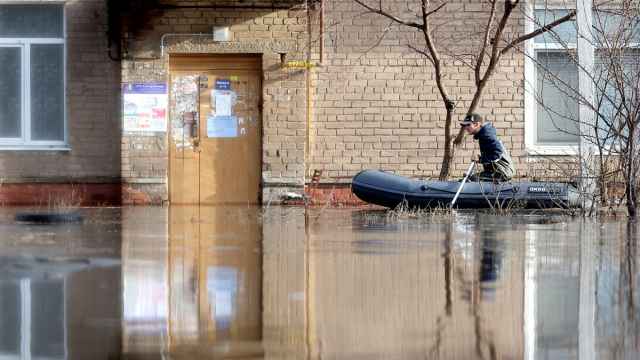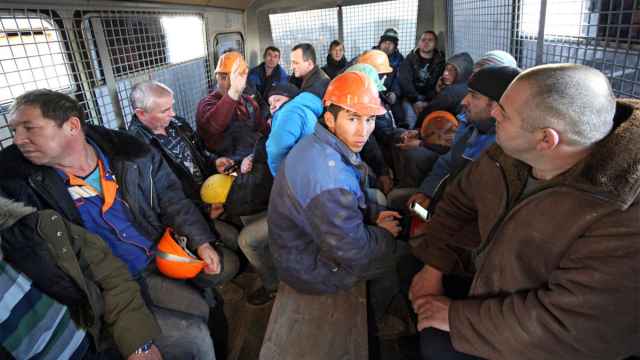Выборы: elections
It’s election season in the U.S., which means that it’s election season in Russia. Russian television news, which has been focused on the United States for years, is now close to obsessed. About half of Russians say that they are following the vote.
My friends and acquaintances are certainly on board. One acquaintance told me: Не беспокойся. Мы не будем тревожить тебя. Мы поняли, что придётся ждать больше недели для получения полных результатов. (Don’t worry. We won’t bother you. We understand that we might have to wait more than a week for all the results.) Another friend said her husband was driving her crazy. Он всё спрашивает, за кого я? Я говорю, не знаю. А он говорит «ну, всё-таки, за кого ты голосовала бы»? (He keeps asking me who I’m for. I tell him I don’t know, and he’s like “Ah, come on, who would you vote for?”)
Whether you want to get involved in a discussion about the elections or you want to read about them, here is a short primer of some of the key words and phrases to get you going.
In the beginning was a candidate or two. First, people put their candidacy forward: Он выдвигает свою кандидатуру на пост президента страны (He is a candidate for president.) Sometime in the process they realize what they’ve committed to: Все ли кандидаты понимают, какой груз ответственности ляжет на них в случае победы? (Do all the candidates understand the burden of responsibility that will befall them if they win?)
And then they run: баллотироваться (to run for elected office). Grammar red alert! There is a tricky and very odd bit of grammar here. You say: баллотироваться в президенты (to run for president). You will note that the word for president is in the plural and in the nominative case. This is used whenever you are speaking of joining a group of people. So, you also say взять в жёны (to take a wife); пойти в няньки (to become a nanny); войти в люди (to go out into the world). This is the only time animate objects, er, human beings, get treated as if they were inanimate objects grammatically. Байден баллотировался в президенты три раза (Biden has run for president three times.)
Once a candidate gets into the race, they start campaigning. Since that’s пройденный этап (a closed chapter), we'll jump ahead, just noting: Как-то странно проходит предвыборная кампания ― нервно и нелогично (The election campaign is weird — very nervous-making and illogical). All true.
Now we’re at election day. You, the voter, are called избиратель. The ballot is called бюллетень. In the U.S. this year you can vote in person or by mail: на избирательном участке (at the polling place) or досрочно по почте (by mail-in, literally “ahead of time by mail”). At this point, babushki in Bryansk can explain about the party affiliations of in-person and mail-in voters.
And then let’s pause for a run-down of the Russian versions of the most unique aspects of the American electoral system. The hallmark of our system, the Electoral College, is sometimes translated as Электоральная коллегия (electoral college) but more commonly as Коллегия выборщиков. Russian sources explain it this way: Выборы президента США проходят по двухступенчатой схеме. (The election of the president of the US is a two-step process). Сначала голосуют избиратели в штатах, а победитель получает голоса всех выборщиков от конкретного штата. (First the voters cast their ballots in the states, and then the winner gets all the electoral votes in a state). В двух штатах, в Мэне и Небраске, делят голоса выборщиков между республиканцами и демократами, а не отдают их одному выигравшему кандидату (In two states, Maine and Nebraska, they divide up the votes of the electors between republicans and democrats instead of winner take all).
Now, isn’t that clearer in Russian? I find the distinction between избиратель and выборщик easier to understand that voter and elector, which sound like synonyms.
Russians of my acquaintance seems to have grasped the concept of традиционно демократический или республиканский штат (traditionally democratic or republican state) since they cheerfully ask, Твой штат синий или красный? (Is your state blue or red?) And now they really get the concept колеблющийся штат (swing state).
Unfortunately, some writers have given up on Russian translation and tell puzzled viewers and readers that Байден, возможно, флипнет Джорджию (Biden might flip Georgia.) But one translator of my acquaintance has decided on Байден забрал Аризону (Biden took Arizona) or Аризона ушла к Байдену (Arizona went to Biden), with explanations, if necessary, that the state traditionally voted otherwise. In this case, people might say В корне меняется существующий расклад сил (This is a game-changer, literally “this changes the balance of power at its heart”).
Right now the states are still doing what is called обработать бюллетени (to process the ballots), which sounds faster and less cumbersome than the long procedure in most states. And so: Исход президентской гонки по-прежнему не определён (The result of the presidential race has not been determined). Не завершён подсчет в ряде штатов (The count is not done in a number of states).
But meanwhile: Президент США оспорит предварительные итоги президентских выборов (The US president will challenge the projected results of the presidential election.)
We will have an opportunity to brush up on our legal terminology very soon.






